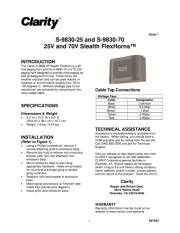JBL L100 Classic Handleiding
Bekijk gratis de handleiding van JBL L100 Classic (6 pagina’s), behorend tot de categorie Speaker. Deze gids werd als nuttig beoordeeld door 77 mensen en kreeg gemiddeld 4.7 sterren uit 39 reviews. Heb je een vraag over JBL L100 Classic of wil je andere gebruikers van dit product iets vragen? Stel een vraag
Pagina 1/6

OWNER’S MANUAL
L100 Classic
Iconic 3-Way Bookshelf Loudspeaker

2
INTRODUCTION
Thank you for purchasing the JBL® L100 Classic 3-Way Loudspeaker
For more than 70 years, JBL has been providing audio equipment for concert halls, recording studios and
movie theaters around the world and has become the trusted choice of leading recording artists and sound
engineers. The legendary JBL 4310 professional studio monitor helped produce many of the most popular
albums of the 1960s and ‘70s. The 4310 was the inspiration for the L100 home audio loudspeaker introduced
in 1970, which became JBL’s all-time best selling speaker. The L100 Classic is a modern interpretation of the
original L100.
The new L100 Classic honors this storied legacy with its iconic 12-inch (300mm) 3-way configuration, but with
all-new drivers, crossover network, enclosure, and features to bring the design up to the highest 21st-century
performance standards. Utilizing a compact monitor-type footprint, the L100 Classic features advanced JBL
transducers including the JW300PW-8 Pure Pulp cone woofer, the 105H-1 Polymer-coated Pure Pulp cone
midrange, and the JT025TI1-4 Titanium tweeter.
The L100 Classic retains all of the performance attributes that endeared the original L100 to listeners in the
‘70’s and ‘80s, such as exceptional dynamic range and contrast, clean and effortless high output, and precise
high impact bass. The updated L100 Classic adds even greater detail resolution across the full bandwidth,
lower distortion and more lifelike stereo imaging, particularly off-axis. The L100 Classic is sure to become a new
legend among music lovers everywhere.
PACKAGE CONTENTS
• One L100 Classic loudspeaker
• One Quadrex foam grille
• One L100 Classic Owner’s Manual
PLACEMENT AND POSITIONING
CAUTION: The L100 Classic weighs 58.8 lb. (26.7 kg) each. Before placing the speaker on a shelf or
platform, be sure that it is sturdy enough to support the speaker’s weight.
Before deciding where to place your speakers, survey your room and think about placement, using the
illustration below as a guide.
• Avoid placing the speakers near power amplifiers, heat
registers or other objects that generate large amounts
of heat.
• Do not place the speakers in very humid or dusty places.
• Do not place the speakers in direct sunlight or where they
will be exposed to other intense light.
• For best results, place the speakers 6–8 feet (1.8-2.4m)
apart. If you set the speakers farther apart than this,
angle them toward the listening position.
• The speakers will produce the most accurate stereo
soundstage when the angle between the listener and the
speakers is between 40 and 60 degrees.
• Generally, bass output will increase as the speaker is
moved closer to a wall or corner. For best performance,
we recommend that you place the speakers at least 20 inches (50cm) away from the sidewalls.
• The speaker will yield the best stereo imaging when oriented vertically.
• The L100 Classic may be stand mounted with optional JBL metal stands (model JBL JS-120,
sold separately) that angle the speaker upward.
• If not using the optional stands with built-in angle, then we recommend you to position each speaker
so that its tweeter is approximately at ear level.
min 20 inches
(50cm)
6-8 feet
(1.8-2.4m)
40° – 60°
Listening Position

3
L100 Classic Owner’s Manual
English
CONNECTIONS
CAUTION: Make sure that all of the system’s electrical components are turned OFF (and preferably
unplugged from their ac outlets) before making any connections.
Speakers and amplifiers have corresponding positive and negative (“+” and “–”)
connection terminals. The L100 Classic has color-coded connection terminals. The
“+” terminal is red, while the “–” terminal is black. See the illustration on the right.
The L100 Classic is designed so that a positive voltage at the “+” (red) terminal
will cause the speaker drivers to move outward (toward the room).
We recommend using a high-quality speaker cable with polarity coding. The side
of the wire with a ridge or other coding is usually considered positive polarity (“+”).
To ensure proper polarity, connect each “+” terminal on the back of the amplifier
or receiver to the respective “+” ( ) terminal on each speaker. Connect the “–” red
( ) terminals in a similar way. See your receiver or amplifier’s owner’s manual black
to confirm its connection procedures.
BASIC SINGLE-WIRE CONNECTION
Connect the amplifier to each speaker as shown in
the illustration on the right.
IMPORTANT: Do not reverse polarities (i.e., “+”
to “–” or “–” to “+”) when making connections.
Doing so will cause poor stereo imaging and
diminished bass performance.
The L100 Classic’s gold-plated speaker terminals
can accept a variety of wire connector types:
bare wire, spade connectors, pin connectors
and banana connectors.
USING BARE WIRE OR PIN CONNECTORS:
IMPORTANT: Make sure that the (+) and (–) wires or
pins do not touch each other or the other terminal.
Touching cables can cause a short circuit that can
damage your receiver or amplifier.
USING SPADE CONNECTORS:
IMPORTANT: Make sure the (+) and (–) spade connector
blades do not touch each other or the other terminal.
Touching blades can cause a short circuit that
can damage your receiver or amplifier.
USING BANANA CONNECTORS:
Negative (-)
Terminal
Positive (+)
Terminal
+-
Receiver or Amplifier
(one channel shown) Speaker
Connector Panel
A. Unscrew Cap
B. Insert Bare Wire or
Pin Connector through
Hole in Post
C. Tighten Cap
to Secure
A. Unscrew Cap B. Insert Space
Connector Blades
around Post
C. Tighten Cap
B. Insert Banana Connector
into Hole in Cap
A. Tighten Cap
Product specificaties
| Merk: | JBL |
| Categorie: | Speaker |
| Model: | L100 Classic |
Heb je hulp nodig?
Als je hulp nodig hebt met JBL L100 Classic stel dan hieronder een vraag en andere gebruikers zullen je antwoorden
Handleiding Speaker JBL

5 Juli 2025

5 Juli 2025
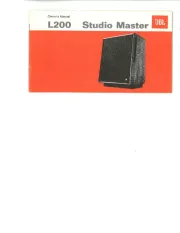
1 Juli 2025
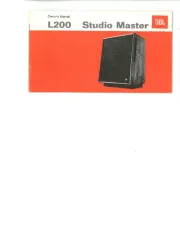
30 Juni 2025
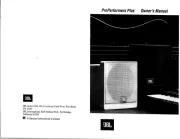
30 Juni 2025
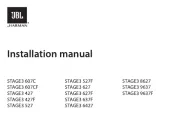
4 Juni 2025
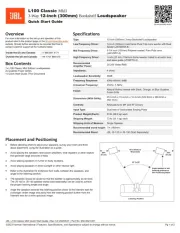
3 Juni 2025
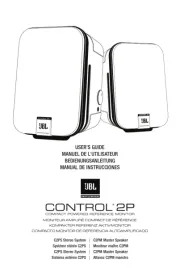
9 Mei 2025

27 April 2025
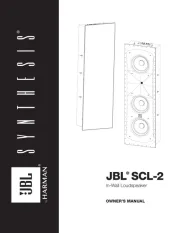
16 April 2025
Handleiding Speaker
- Bowers Wilkins
- HuddleCamHD
- Pyramid
- TFA
- Grundig
- LG
- Sirus
- Xantech
- DB Technologies
- SuperTooth
- Clatronic
- Tristar
- Cabasse
- KLH Audio
- Sudio
Nieuwste handleidingen voor Speaker
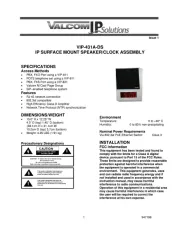
1 Augustus 2025
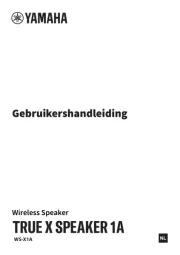
1 Augustus 2025
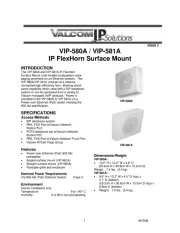
31 Juli 2025
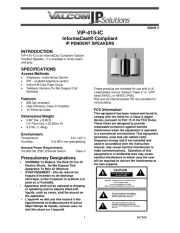
31 Juli 2025
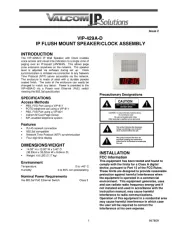
31 Juli 2025
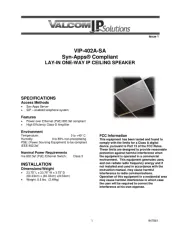
31 Juli 2025
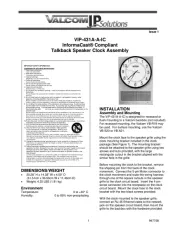
31 Juli 2025
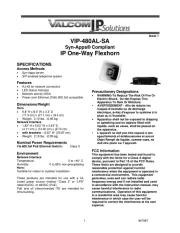
31 Juli 2025
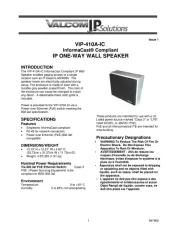
31 Juli 2025
